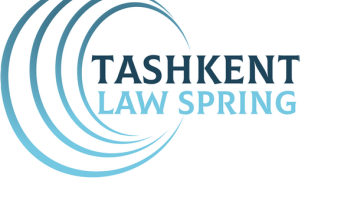25 November 2022
Is your tax haven already failing its goal, but popular alternatives mean that you have to give up most of your profits? Do you want to pay less taxes? Welcome to Kazakhstan!
Kazakhstan's tax system belongs to a jurisdiction with low tax rates compared to Russia and remains well below the European average in terms of corporate and individual tax rates.
TAX TYPES
In Kazakhstan, the corporate tax rate ranges from 5 to 20%, and there is no official threshold for the ratio of profit to turnover.
In addition to corporate income tax, permanent establishments of foreign legal entities are subject to branch income tax at the rate of 15% of net income after the payment of corporate income tax. As a result, the effective income tax rate is 32% for permanent establishments of foreign companies.
With respect to individuals, income tax is levied on: income, income from self-employment, copyrights, capital, real estate, capital gains and other types of income. Non-residents are taxed only on income earned in Kazakhstan. Income tax is paid by individuals who are residents of Kazakhstan (if the individual has a place of residence or business in Kazakhstan or remains in Kazakhstan for at least 183 days in a tax year, a certified tax residence certificate can be obtained after 365 days after providing temporary residence). The income tax rate is a maximum of 15%, which makes Kazakhstan's income tax one of the lowest not only in Europe but also in the world.
The tax on dividends is 15%, while the dividend tax can be reduced to 5% by activating double taxation agreements.
The remittances of the branch to the parent company are not subject to dividend taxation, bearing in mind that the funds are circulating within the same legal entity, which undeniably makes this structure ideal for activating old or non-operating legal entities. In addition, special legal arrangements between the parent company and the branch enable, under certain conditions, to receive funds and make payments on behalf of the parent company without receiving income.
As for value added tax (VAT), registration as a VAT payer is required for all individuals and companies that carry out commercial activities in Kazakhstan and have an aggregate taxable turnover exceeding 30,000 times the monthly calculation index (hereinafter - MRI) during a calendar year.
Employers in Kazakhstan, including foreign employers operating in Kazakhstan through branches or representative offices, must pay social tax on their Kazakh and foreign workers and seconded workers. The social tax rate is:
- 9.5% - as of January 1, 2018;
- 11% - from January 1, 2025.
Contributions to the State Social Insurance Fund reduce social tax liabilities and, thus, do not represent an additional tax burden for an employer.
In addition to mandatory pension contributions, employers in Kazakhstan are required to pay mandatory occupational pension contributions for certain Kazakhstani employees working in hazardous working conditions. Mandatory occupational pension contributions are paid at the employer's expense at the rate of 5% of the accrued income of employees working in harmful working conditions.
Starting January 1, 2020, employers in Kazakhstan pay a new component of the pension system - mandatory employer pension contributions (MERC) - to the Single Accumulative Pension Fund. The rate of MERC is 5% of the income of employees. The cost of the MERC will be borne by employers registered in Kazakhstan. The Unified Accumulative Pension Fund will reflect the MERC on notional pension accounts that will be opened for each employee.
Tax Incentives
Special economic zones (SEZ)
Kazakhstan has established 11 SEZ to encourage the development and support non-resource-oriented sectors of the economy. Companies operating in SEZ are exempt from corporate income tax, property tax and land tax. Certain goods sold in FEZ are subject to zero-rated VAT. Under certain conditions legal entities operating in the special economic zone "Park of Innovative Technologies" can count on full exemption from social tax for their employees.
Investments in priority sectors of economy
The following privileges are given for investments in priority sectors of economy on the basis of investment contracts concluded between an investor and the state:
- Exemption from customs duties;
- Exemption from payment of corporate income tax (up to 10 years), land tax (up to 10 years) and property tax (up to 8 years);
- Refund up to 30% of actual investments in fixed assets.
Today the industrial infrastructure, processing industries, housing construction, social sphere (education, medicine, sports and cultural-entertaining facilities), tourism, communications, production of nuclear materials, and agriculture are priority sectors of the economy.




